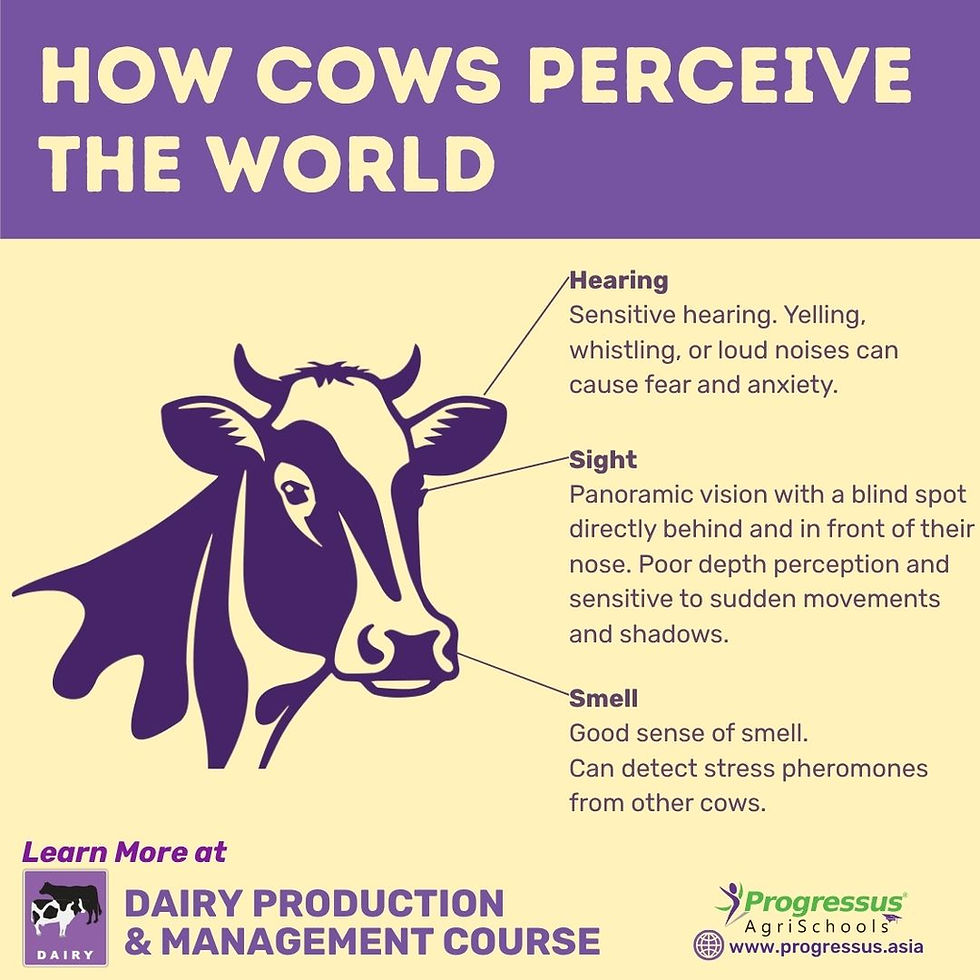The Art of Good Stockmanship in Dairy Farming: A Better Way to Handle Cattle
- Progressus

- Aug 8, 2025
- 2 min read
In the world of agriculture, the well-being of livestock is directly linked to the success of the farm. While many methods exist for managing cattle, the principles of good stockmanship offer a more humane and effective approach. This method, centered on understanding the animals' natural behavior, leads to a multitude of positive outcomes for both the herd and the handler.

The benefits of a low-stress handling philosophy are far-reaching. By creating a calm and predictable environment, we can significantly reduce stress in our animals. This, in turn, has been proven to increase overall production and improve herd health, leading to a more profitable operation. A calm environment also drastically reduces the risk of injuries to both cattle and handlers, making for a safer workplace. The core of this philosophy is rooted in a fundamental truth: a calm cow is a productive cow.
The key to successful low-stress handling lies in understanding how cattle perceive the world around them. As prey animals, their senses are highly tuned to detect potential threats. Their panoramic vision, for example, is excellent for spotting predators but has significant limitations, such as blind spots and poor depth perception. Their sensitive hearing means they can easily be startled by loud noises. Learning to work with these instincts, rather than against them, is the foundation of this training.
Ultimately, mastering the art of good stockmanship comes down to a simple philosophy: SLOW = SMOOTH = FAST. By taking the time to move cows calmly and deliberately, we can achieve more efficient and effective results. For those looking to take their skills to the next level, a full training course can provide the detailed techniques needed to implement these powerful principles on a daily basis.
For those looking to take their skills to the next level, a full training course can provide the detailed techniques needed to implement these powerful principles on a daily basis. At the Progressus Dairy Production and Management Course, participants gain deeper insight into the science and practice of low-stress cattle handling, with hands-on learning that brings theory to life. Whether you're new to stockmanship or seeking to refine your approach, this course offers the practical tools and expert guidance to transform how you manage your herd.




Comments